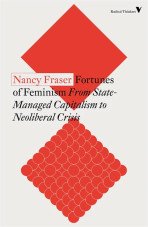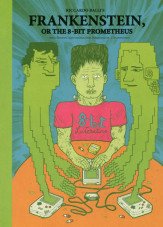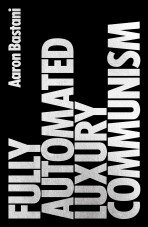English books
Englischsprachige Bücher von AK Press, Crimethinc und anderen...
Autor*innen: Bernard Goldstein
Autor*innen: Maurice Brinton
During the ferment of the New Left, “Second Wave” feminism emerged as a struggle for women’s liberation and took its place alongside other radical movements that were questioning core features of capitalist society. But feminism’s subsequent immersion in identity politics coincided with a decline in its utopian energies and the rise of neoliberalism. Now, foreseeing a revival in the movement, Fraser argues for a reinvigorated feminist radicalism able to address the global economic crisis.
Autor*innen: Nancy Fraser
In this urgent response to violence, racism and increasingly aggressive methods of coercion, Judith Butler explores the media’s portrayal of armed conflict, a process integral to how the West prosecutes its wars. In doing so, she calls for a reconceptualization of the left, one united in opposition and resistance to the illegitimate and arbitrary effects of interventionist military action.
Autor*innen: Judith Butler
Autor*innen: Riccardo Balli
In this scintillating, comprehensive study, Ricordeau draws from two decades as an abolitionist activist and scholar of the penal justice system to describe how the criminal justice system hurts women. Considering the position of survivors of violence, criminalized women, and women with criminalized relatives, Ricordeau charts a new path to emancipation without incarceration.
Autor*innen: Gwenola Ricordeau
From its roots in revolution and war, Ukraine’s Azov movement has grown from a militia of fringe far-right figures and football hooligans fending off Russian-backed forces into a multipronged social movement that has become the envy of the global far right. In this first English-language book on the Azov movement, Michael Colborne explains how Azov came to be and continues to exploit Ukraine’s fractured social and political Situation - including the only ongoing war on European soil - to build one of the most ambitious and dangerous far-right movements in the world.
Autor*innen: Michael Colborne
Autor*innen: Aaron Bastani
In this short, highly readable book, the master of world-systems theory provides a succinct anatomy of capitalism over the past five hundred years. Considering the way capitalism has changed and evolved over the centuries, and what has remained constant, he outlines its chief characteristics. In particular, he looks at the emergence and development of a world market, and of labor; in doing so, he argues that capitalism has brought about immiseration in the Global South. As long as they remain within a framework of world capitalism, Wallerstein concludes, the economic and social problems of developing countries will remain unresolved.
Autor*innen: Immanuel Wallerstein
History and Class Consciousness was the most important of Georg Lukács’s early theoretical writings, published in Germany in 1923. The subject of high praise and passionate criticism, it had a major impact on all the Marxist debates that followed, introducing key new concepts such as ‘totality’, ‘reification’ and ‘imputed class consciousness’. This centenary edition, with a new preface by Michael Löwy, comprises a series of essays exploring, among other topics, the definition of orthodox Marxism, the question of legality and illegality, Rosa Luxemburg as a Marxist, the changing function of historic Marxism, and the substantiation and consciousness of the Proletariat.
Autor*innen: George Lukacs
Autor*innen: Andreas Malm
One of America’s most historic political trials is undoubtedly that of Angela Davis. Opening with a letter from James Baldwin to Davis, and including contributions from numerous radicals such as Black Panthers George Jackson, Huey P. Newton, Bobby Seale and Erica Huggins, this book is not only an account of Davis’s incarceration and the struggles surrounding it, but also perhaps the most comprehensive and thorough analysis of the prison system of the United State.
Autor*innen: Angela Davis


























